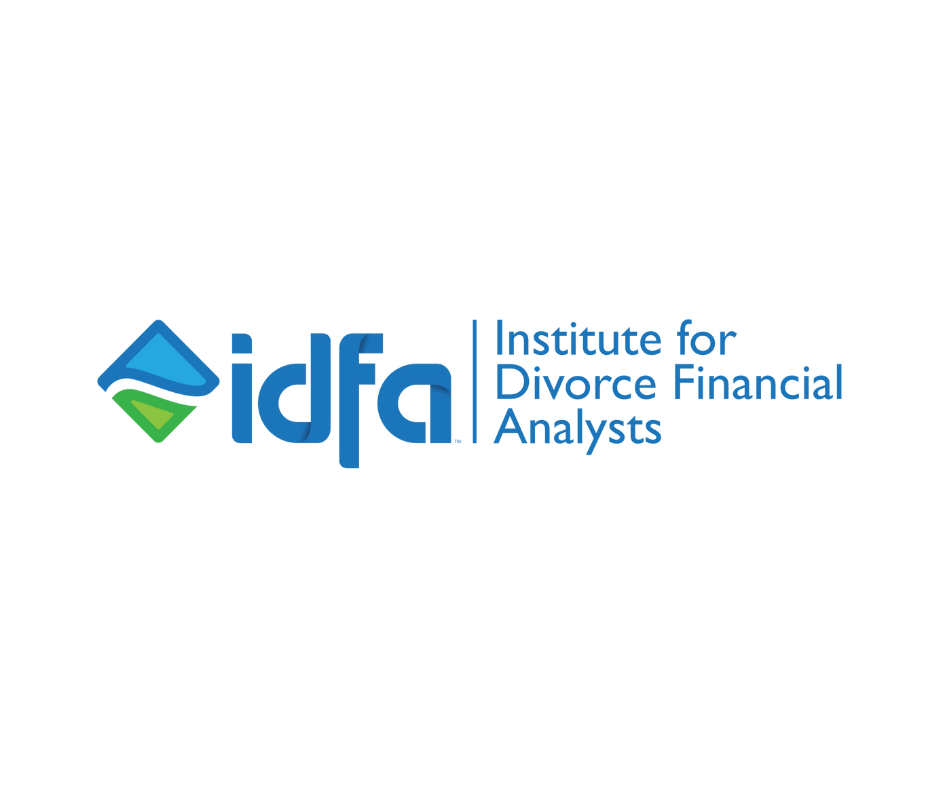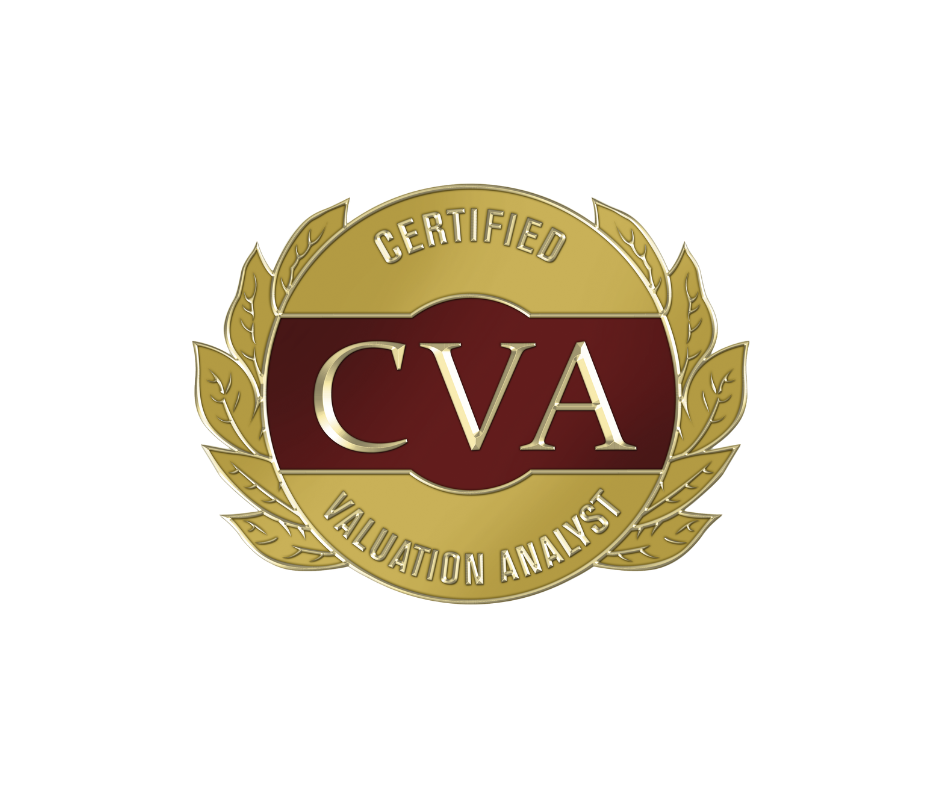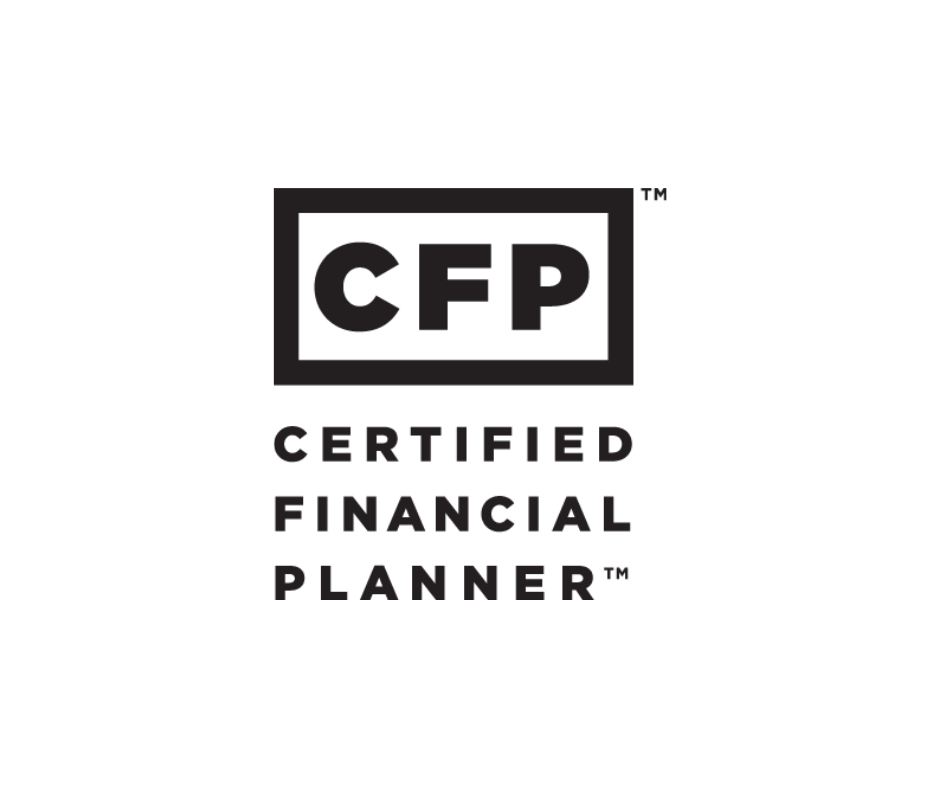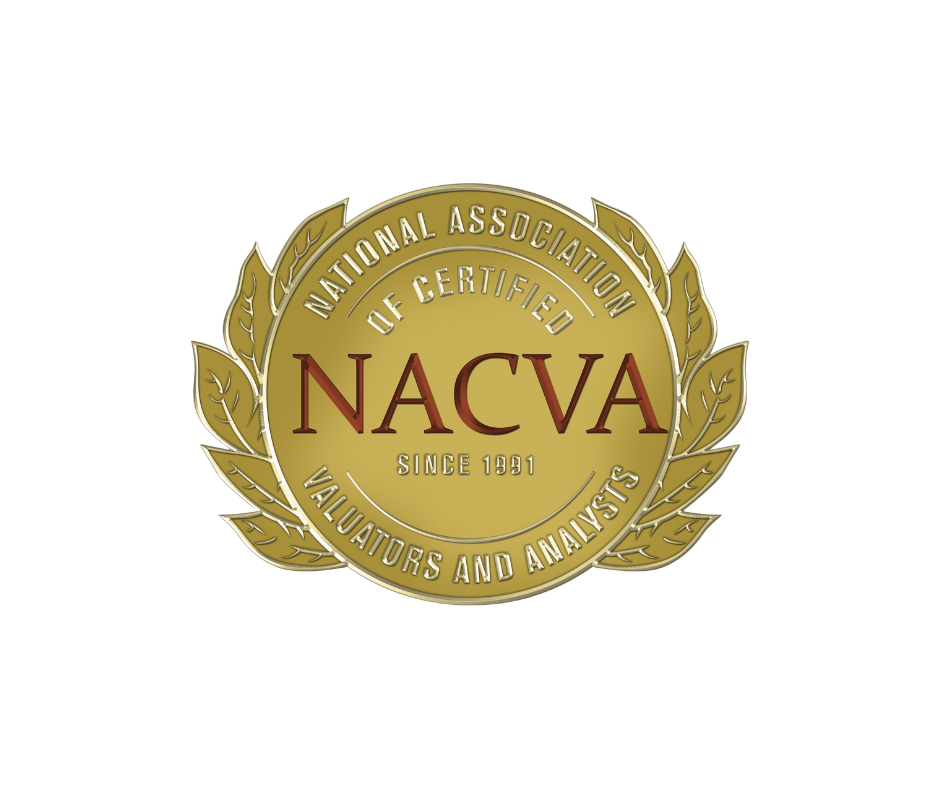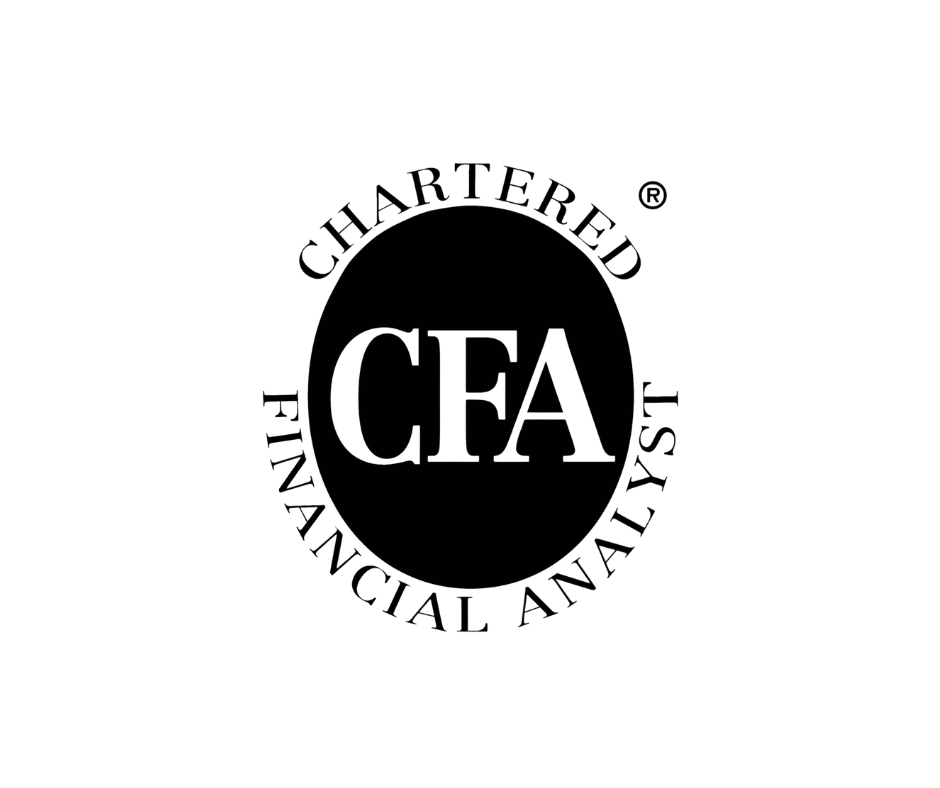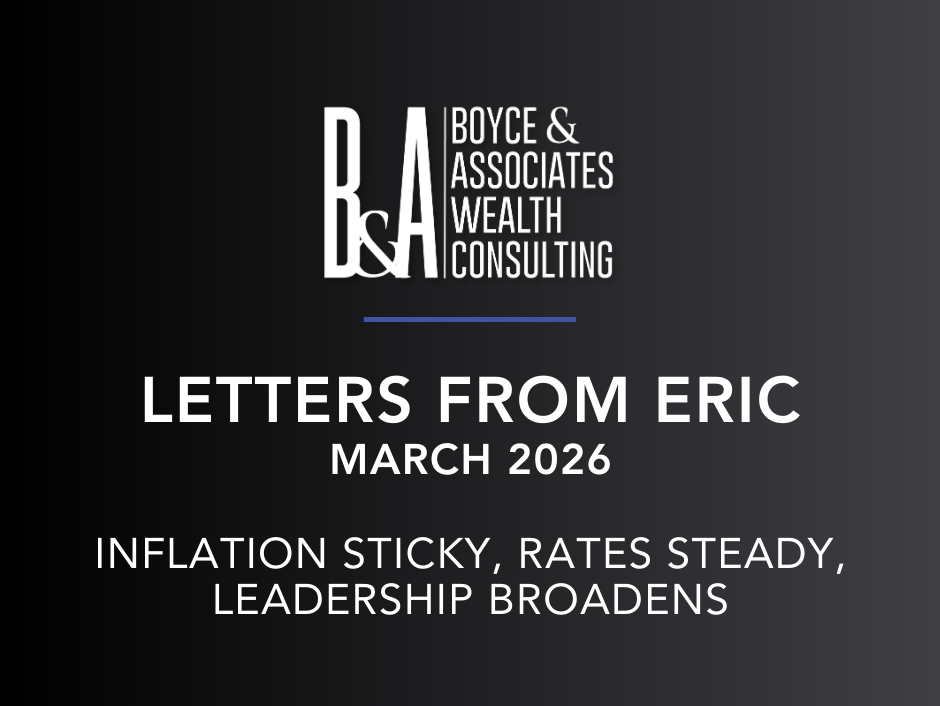WELCOME TO BOYCE & ASSOCIATES WEALTH CONSULTING
We’re a Wealth Management Firm Helping You Preserve Capital, Reduce Taxes, and Turn Assets Into Lifelong Financial Confidence
As a fee-based fiduciary, we deliver conservative investment oversight and personalized financial planning, so business owners, retirees, and high-net-worth families can protect their wealth across generations.
WELCOME TO BOYCE & ASSOCIATES WEALTH CONSULTING
We’re a Wealth Management Firm Helping You Preserve Capital, Reduce Taxes, and Turn Assets Into Lifelong Financial Confidence
As a fee-based fiduciary, we deliver conservative investment oversight and personalized financial planning, so business owners, retirees, and high-net-worth families can protect their wealth across generations.
WELCOME TO BOYCE & ASSOCIATES WEALTH CONSULTING
We’re a Wealth Management Firm Helping You Preserve Capital, Reduce Taxes, and Turn Assets Into Lifelong Financial Confidence
As a fee-based fiduciary, we deliver conservative investment oversight and personalized financial planning, so business owners, retirees, and high-net-worth families can protect their wealth across generations.
Preserve. Plan. Prosper.
Preserve
Your wealth is never exposed to trends, fads, or unnecessary risk. We prioritize principal protection through disciplined, time-tested strategies and complete transparency on every investment move.
PLAn
We engineer a detailed financial roadmap tailored to your specific needs, whether it’s retiring early, selling your business, or providing for your family, then we proactively manage and adjust as life changes.
Prosper
Through long-term thinking and steady execution, we help turn today’s assets into tomorrow’s confidence, so your wealth outlasts market cycles and becomes a legacy.
WHO WE SERVE
High-Net-Worth Individuals
We design comprehensive plans that include conservative investment management, tax minimization, estate coordination, and retirement projections. Portfolios are managed in-house to help manage risk and protect long-term goals. We also collaborate with your CPA and estate attorney to ensure all your financial, legal, and tax strategies are aligned.
Business Owners
We help business owners prepare for transitions by valuing the business, identifying growth drivers, and addressing succession gaps. We create plans for owner replacement, employee retention, and liquidity, then coordinate with your legal and tax advisors to align your exit with your personal retirement and investment strategy.
Married Couples
We help married couples prioritize education, retirement, and lifestyle needs through integrated planning. We analyze cash flow, recommend 529 plans, structure savings, and adjust investment allocations.
Dual-Income Families
We build financial plans that track income, savings, insurance, and investment needs toward clear milestones, like retirement age, buying a second home, or funding children’s education.
Women Navigating Divorce
Divorce brings financial questions around budgeting, asset division, housing, and future income. We help women assess what they own, understand settlement impacts, and create a post-divorce plan that includes investing, risk management, and cash flow.
SENIORS PREPARING FOR OR LIVING IN RETIREMENT
Retirement requires a shift from saving to spending wisely. We build income strategies using conservative investments, Social Security timing, and tax-efficient withdrawals from IRAs and other accounts.
We also account for future healthcare expenses and estate transfer goals, helping you avoid overspending, unnecessary taxes, or financial gaps later in life.
Independent Women
Widowhood, caregiving, and major life shifts require financial clarity. We help women consolidate accounts, establish steady income, preserve assets from healthcare costs, and ensure documents like powers of attorney are in place.
OUR SERVICES
Financial Planning
Our financial planning covers retirement timelines, tax minimization, estate preparation, cash flow, and liquidity, giving clients a clear, actionable roadmap that adapts with life changes.
INVESTMENT
MANAGEMENT
We manage portfolios in-house with a conservative strategy designed to preserve capital and manage volatility.
Insurance & Risk Management
We review and assess insurance coverage to protect clients against income loss, health risks, and estate erosion.
Financial Planning
Our financial planning covers retirement timelines, tax minimization, estate preparation, cash flow, and liquidity, giving clients a clear, actionable roadmap that adapts with life changes.
INVESTMENT MANAGEMENT
We manage portfolios in-house with a conservative strategy designed to preserve capital and manage volatility.
Insurance & Risk Management
We review and assess insurance coverage to protect clients against income loss, health risks, and estate erosion.
College Planning
We help families with college-bound children project education costs, evaluate funding strategies, and structure savings using tax-advantaged tools like 529 plans.
Business Exit Planning
We guide business owners through every stage of exit planning by helping identify successors, unlock business liquidity, and reduce tax exposure.
Business Valuations
We perform business valuations for business owners looking to understand their company’s worth, whether for internal planning, partner buy-in/buyout, succession, or exit
College Planning
We help families with college-bound children project education costs, evaluate funding strategies, and structure savings using tax-advantaged tools like 529 plans.
Business Valuations
We perform business valuations for business owners looking to understand their company’s worth, whether for internal planning, partner buy-in/buyout, succession, or exit.
Business Exit Planning
We guide business owners through every stage of exit planning by helping identify successors, unlock business liquidity, and reduce tax exposure.
A DIFFERENT KIND OF WEALTH MANAGER
OUR PHILOSOPHY
If you are a business owner, your most significant asset is typically your business. Boyce & Associates Wealth Consulting, Inc. was created to help business owners maximize the value of their business while they are still in it, by looking at “wealth management” through a completely different lens. By working closely with owners and key employees, we can help them navigate business growth and employee retention issues to help ensure that the owner’s eventual exit is not only satisfying and rewarding, but also in line with expectations. We accomplish this by ascertaining both the contributors and anchors to company value, and working with owners to address the items which may be limiting value growth.
For our private clients and their families, we leverage the power of goals-based financial planning to help clients reflect and focus on what is most important to them over the near and long term. This helps us to create and execute a well integrated, forward thinking financial plan for our clients which, if properly monitored and maintained, should secure our clients’ well being throughout their retirement years. Our process and dedication is at the heart of our investment approach, which is designed to achieve the highest probability of success in our clients’ financial plans.
OUR PROCESS
Discovery Form (Precisefp)
You begin by filling out our secure online form via PreciseFP. This gives us a full understanding of your financial details, goals, and any concerns, so we’re well-prepared before our first conversation.
Initial
Consultation
We schedule a phone or in-person meeting based on your preference to review your information, answer questions, and explore if our services are a good fit for your needs.
Process Overview with Visual Guide
During the meeting, we walk you through a visual overview of how we operate, from planning to investment management, so you know exactly how we’ll work together going forward.
Onboarding &
Document Upload
If you decide to move forward, we send you a secure PreciseFP link to upload required documents. We also share access to a Google Drive folder where you can submit items like account statements and a voided check.
Receive a Meeting Summary
You’ll receive a written recap of the meeting within 24 hours, including action steps, shared links, and next steps to keep everything moving forward.
Get Your Financial Life Organizer
Once our advisory agreement is signed, we deliver your personalized Financial Life Organizer, a centralized tool to keep your financial data, documents, and key planning information organized and accessible in one place.
We Are A Fee-Based Registered Investment Advisor & Fiduciary
As a Registered Investment Advisor (RIA) and fee-based fiduciary, Boyce Wealth is legally and ethically obligated to act in your best interest, always. Unlike brokers or commission-based advisors, we do not earn money from selling financial products. That means no pressure to move assets, no hidden markups, and no conflicts of interest guiding our advice.
In practice, this means you’ll never face surprise fees, unnecessary trades, or product pitches. You get straightforward advice, clearly explained strategies, and a relationship built on transparency and long-term trust.
HOW BOYCE WEALTH COMPARES

As a Registered Investment Advisor (RIA) and fee-based fiduciary, Boyce Wealth is legally and ethically obligated to act in your best interest, always. Unlike brokers or commission-based advisors, we do not earn money from selling financial products. That means no pressure to move assets, no hidden markups, and no conflicts of interest guiding our advice.
In practice, this means you’ll never face surprise fees, unnecessary trades, or product pitches. You get straightforward advice, clearly explained strategies, and a relationship built on transparency and long-term trust.
HOW BOYCE WEALTH COMPARES

| Fiduciary RIA | Commission-Based Advisors | Robo-Advisors | Big Banks / Brokerages |
|---|---|---|---|
| We charge a clear, flat or percentage-based fee, so our advice is objective and aligned with your best interests. | They get paid by selling mutual funds, annuities, or insurance products. | They charge a fixed platform fee with no human oversight. | They charge layered fees and receive commissions for in-house products. |
| We act as fiduciaries, meaning we are legally required to act in your best interest. | They follow a suitability standard and can recommend high-fee products. | Most do not offer fiduciary protection. | Most prioritize firm-driven sales targets over client outcomes. |
| We build customized, conservative portfolios based on your goals, timeline, and risk tolerance. | They often use pre-set portfolios tied to the products they sell. | They use generic algorithms with no personalization. | They use model portfolios designed for broad firm use. |
| We disclose all fees and explain investment decisions before taking action. | Fee details are buried in product documents and rarely discussed. | Fees are shown, but there's no explanation of strategy. | Fees are bundled and tied to transactions or account size. |
| You work directly with your advisor who manages your plan and adjusts as life changes. | Advisor relationships often shift due to turnover or production quotas. | No advisor access; service is automated. | Service is split between departments; advice is generic. |
THE "WHY" BEHIND BOYCE & ASSOCIATES
WHY RETAIN BOYCE & ASSOCIATES?
- The Stability of our experienced team, which is strong, professional, and qualified
- Our emphasis on comprehensive financial planning before we invest a dollar
- Our conservative investment philosophy with a focus on client objectives
- A consistently applied, disciplined repeatable process
- We understand that it is your wealth and investments, not ours, and we have empathy for our clients
- We communicate
- We exist to serve our clients, and we carry out our mission efficiently and ethically
WHY RETAIN BOYCE & ASSOCIATES?
You’ll always know exactly what you’re paying and what services you’re receiving—no hidden costs, no commissions.
We never move your money or make changes without your full understanding and written approval.
We don’t push products or chase performance. Every recommendation is based on your needs and risk tolerance.
Our strategies are built to manage downside risk and preserve capital, not to speculate or follow market fads.
You get timely follow-ups, clear action steps, and direct access to your advisor when questions arise.
Your financial plan is built from scratch to reflect your life, goals, and future plans.
Let’s Talk About Your Financial Future
We work best with business owners, families, and individuals who want clarity, protection, and real partnership, not a sales pitch. Whether you’re preparing for retirement, selling a business, or just ready to organize your finances, we’re ready to help.
Start with a complementary, confidential, and no-pressure call to see if we’re the right fit.
Schedule a meeting today with one of our fantastic team members!
READY TO SCHEDULE?
Lindsey Sharpe,
AAMS®, CDFA®
Vice President, Financial Planning
Director of Client Relationship Management
Lindsey Sharpe
AAMS®, CDFA®
Vice President, Financial Planning
Director of Client Relationship Management
Lindsey Sharpe
AAMS®, CDFA®
Vice President, Financial Planning
Director of Client Relationship Management
B & A Blog
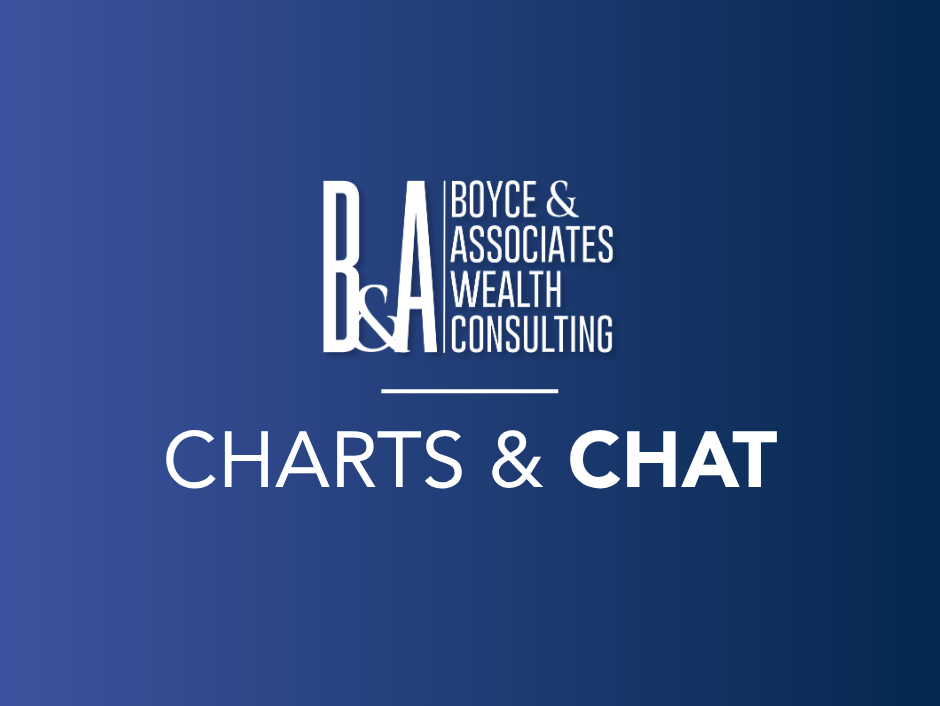

529 Disclosure
A 529 plan is a college savings plan that allows individuals to save for college on a tax-advantaged basis. Every state offers at least one 529 plan. Before buying a 529 plan, you should inquire about the particular plan and its fees and expenses. You should also consider that certain states offer tax benefits and fee savings to in-state residents. Whether a state tax deduction and/or application fee savings are available depends on your state of residence. For tax advice, consult your tax professional. Non-qualifying distribution earnings prior to 2024 are taxable and subject to a 10% tax penalty. Beginning in 2024, unused 529 plan funds may be rolled into a Roth IRA assuming the following conditions are met: 1) must have owned the 529 plan for 15 years, 2) can only convert funds that have been in the 529 plan for at least 5 years, 3) rollover amount cannot exceed $35,000 and 4) rollovers must be made to a beneficiaries Roth IRA.
SSA Disclosure
Not associated with or endorsed by the Social Security Administration, Medicare or any other government agency.


